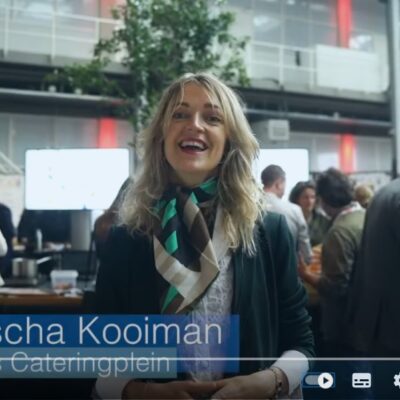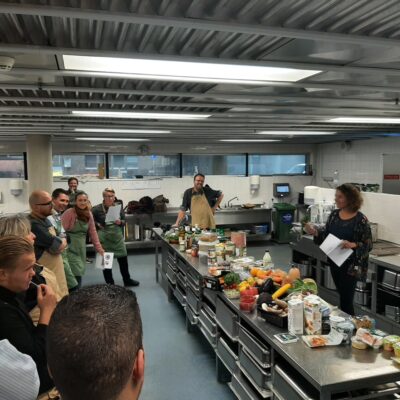
A dietary shift
as a leverage towards Sustainable Food Systems
#Plantpower on the agenda!
This weekend the Science-Policy-Business Forum on the Environment took place. This was linked to the United Nations Environment Assembly 2019 . And for the first time, in both conferences Sustainable Food Systems was one of the main themes.
Preparing and moderating the session ‘Sustainable food systems for healthy people on a healthy planet’, I got to work together with two very inspirational speakers, addressing the need for a serious dietary shift.
The first speaker, Philip Lymberry (CEO, Compassion in World Farming) puts forward the challenges we are facing and the very clear call to action: “we need to reconsider the way we think about what we eat”. He urges to stop industrial animal farming for numerous reasons concerning the heavy impact on the environment and on our health and because of ethical reasons.
Stineke Oenema, Coordinator, UN Standing Committee on Nutrition, followed this ‘WHY’ up by the HOW: “sustainable diets as a push forward to sustainable food system transformation”. Stineke very clearly strengthened the message of Philip that our diets need to radically change and move towards a focus on health and nourishing. And that the shift towards more plant based, off course next to less sugar and less fat, is one of the most important interventions. In the Western countries we need to restore the balance, in developing countries we need to prevent a disbalance.
We need to move towards change with the help of also policy making. Prof. Linxiu Zhang (World Academy of Sciences for Development) stressed the importance of a regional approach of policymakers: What do we need to produce for healthy people, in a regional context, in such a way that agriculture is a more environmental sound.
We need to intervene at all levels. Also the business world needs to be engaged in this necessary shift. They are an essential intermediate between production and consumption for transforming food systems. It was tried to get them in the panel, but again it seemed hard to engage them in a multistakeholder dialogue on sustainable food system. Something that I could write another blog about…
Drawing to conclusions for this session so far? We need to face the fact that we seriously have to reconsider the way we eat, not only how we produce but also what we produce. Here lies one of the most important interventions on a individual -, as well as a policy -, as well as on a business level: cut down the production and consumption of meat and prevent the countries that not yet need to do that, from getting to that level.
We need business government and UN to work together to change the food system. We cannot hand this over to consumer. Who is THE consumer anyway? Our eating habits have been shaped by policies and by businesses. Quoting Philip: “1. We need change, 2. We need leadership 3. We need policy solutions.” Let’s get the right people and organisations on board and organize the needed transformation of our diets and food system!
My personal conclusion? Protein transition, still a taboo when I entered this international context 3 years ago, it now became finally on the most international agenda. Now let’s keep on going!
Deel dit artikel
Andere berichten
Overheid ziet winst in duurzame en gezonde catering
Duurzamere facilitaire dienstverlening zorgt voor positieve impact. Maar op welk vlak is nu de meeste winst te behalen, in termen van klimaatimpact én gezondheid? Juist: catering. Tijdens de Circulaire Beurs van de Rijksoverheid op 10 Lees verder
Compass Grop toont lef in haar ambities
Afgelopen jaar heeft Smaackmakers Compass Group mogen adviseren in het formuleren van een visie, missie, doelen en maatregelen om te komen tot plantaardiger cateringaanbod. Ons ideaal. Want het begint bij het neerzetten van een hele Lees verder
Vegan is “Hip” en niet meer Geitenwollen Sokken
Trends in catering 2022: “Plantaardig wordt het nieuwe normaal” Interview met Natascha Kooiman in Nieuwsbrief FACTO van 5 januari 2022: Welke trends op het gebied van (bedrijfs)catering kunnen we voor het komende jaar verwachten? Met Lees verder


